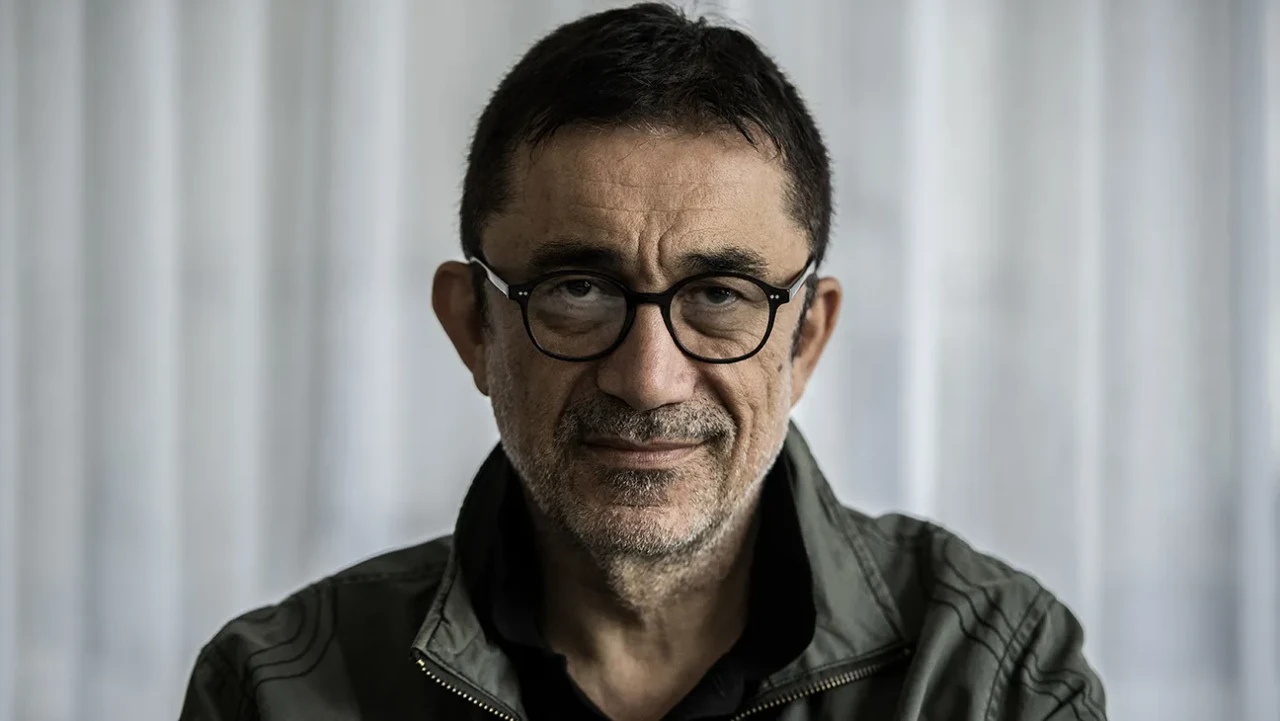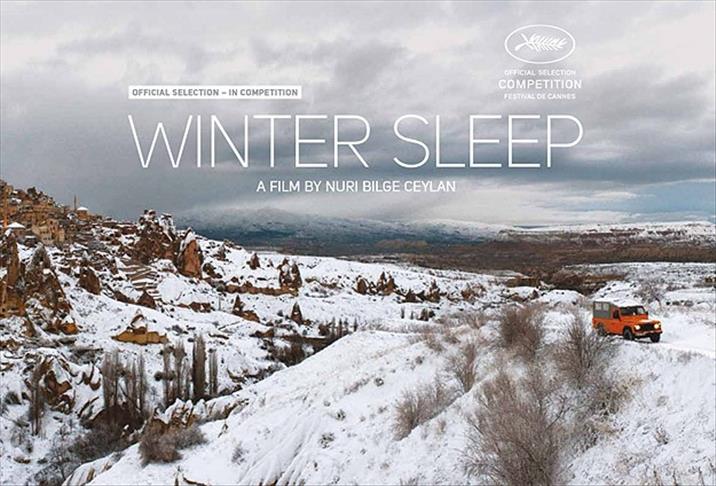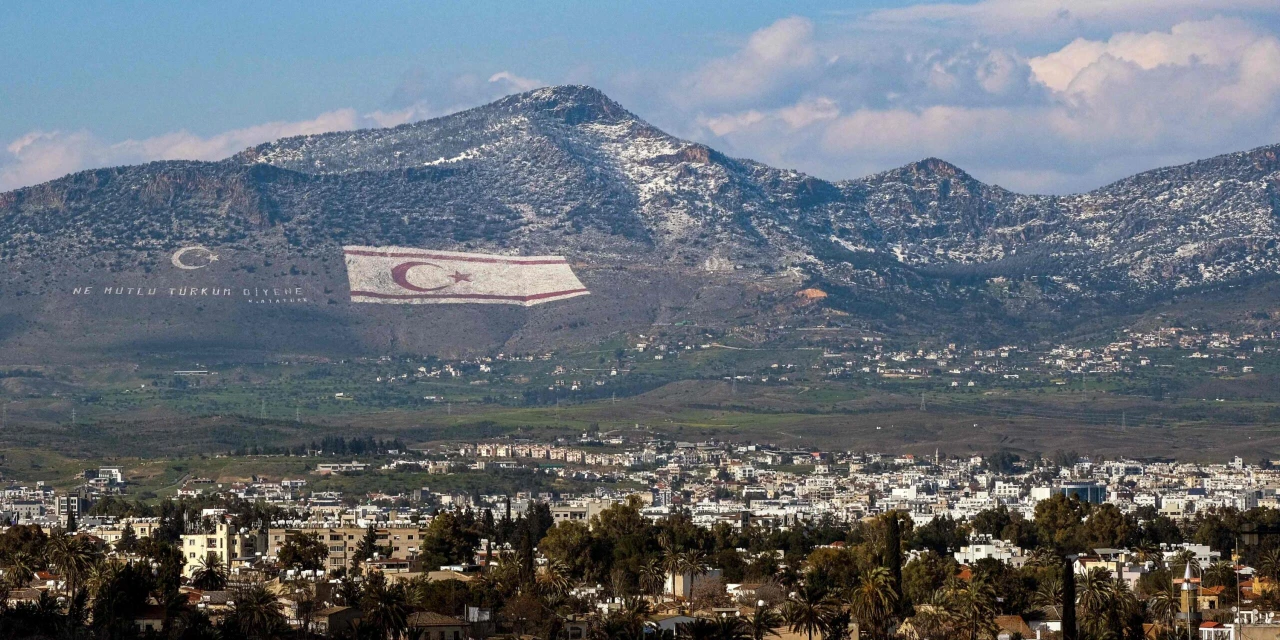Nuri Bilge Ceylan: Visionary Turkish filmmaker who captivates world stage
 Turkish film director Nuri Bilge Ceylan poses in Paris, France, June 22, 2018. (AFP Photo)
Turkish film director Nuri Bilge Ceylan poses in Paris, France, June 22, 2018. (AFP Photo)
Nuri Bilge Ceylan, born on January 26, 1959, in Istanbul, Türkiye, is a celebrated Turkish filmmaker, screenwriter, photographer, and actor renowned for his introspective and visually stunning films. Widely regarded as one of the leading auteurs of contemporary world cinema, Ceylan has garnered international acclaim for his unique narrative style, marked by slow pacing, minimal dialogue, and profound exploration of the human condition.
With numerous prestigious awards, including the Palme d’Or at Cannes, his cinematic journey continues to captivate audiences worldwide, making him a pivotal figure in global filmmaking.
Background and education
Filmmaking was not Nuri Bilge Ceylan’s initial plan. Most of his childhood was spent in Yenice, Canakkale before returning to Istanbul where he studied chemistry at Istanbul Technical University in 1976 and then transferred to electrical engineering at Bogazici University in 1978. His passion for photography and visual arts grew through his involvement in university clubs and film classes. His photography began to gain recognition during his time in university, being featured in Turkish arts magazines and winning a national competition to represent Türkiye at an international Kodak event.
After completing his degree in electrical engineering in 1985, Ceylan finished his compulsory military service and upon returning enrolled in Mimar Sinan Fine Arts University to pursue his career in filmmaking. However, he left the program two years after enrolling to gain more practical experience in filmmaking, which led to the start of his professional career as a photographer and filmmaker.
Nuri Bilge Ceylan’s filmmaking career
Nuri Bilge Ceylan’s filmmaking career is marked by a steady rise from independent beginnings to international acclaim. It is characterized by a meticulous, introspective style and a strong auteur vision.
Nuri Bilge Ceylan’s first film was the short Koza (Cocoon,1995). It made history as the first Turkish short selected for competition at the Cannes Film Festival. Following the short’s success, Ceylan made three films that explored rural Turkish life and family relationships in which he often used non-professional actors, including his relatives. These films, Kasaba (The Small Town, 1997), Mayis Sikintisi (Clouds of May 1999), and Uzak (Distant, 2002) are known as his “provincial trilogy” with Uzak winning the Grand Prix and Best Actor awards at Cannes, bringing Nuri Bilge Ceylan significant international recognition. The film, Uzak, went on to win a total of 47 awards, 23 of them international, making it the most-awarded film in Turkish cinema history at the time.

Ceylan’s subsequent films continued to premiere at Cannes and be received with critical acclaim with İklimler (Climates, 2006) winning the FIPRESCI Prize with Ceylan and his wife Ebru Ceylan in the lead roles. Uc Maymun (Three Monkeys, 2008) earned him the Best Director award at Cannes and became the first Turkish film to make the Oscars shortlist for Best Foreign Language Film. Bir Zamanlar Anadolu’da (Once Upon a Time in Anatolia, 2011) won the Grand Prix at Cannes and Kis Uykusu (Winter Sleep, 2014) won the Palme d’Or, the highest prize at Cannes, and the FIPRESCI Prize, further solidifying his reputation and marking the peak of his international recognition. His most recent work Kuru Otlar Üstüne (About Dry Grasses, 2023) competed for the Palme d’Or at Cannes and won the Best Actress award for Merve Dizdar. The film continues its tradition of visually rich and emotionally complex storytelling.
Nuri Bilge Ceylan’s filmmaking career is defined by artistic independence, a distinctive visual and narrative style, and sustained international acclaim, making him a central figure in Turkish and world cinema.
Themes and filmmaking style
In his early films, Ceylan often took on multiple roles, including writing, directing, cinematography, editing, and even acting, frequently collaborating with family and friends. His films are known for their slow pacing and atmospheric visuals. He immerses viewers in the world of his characters, allowing time for reflection and contemplation. This pacing encourages the audience to actively engage with the film’s emotional and philosophical layers.
The dialogue in his films is sparse. Ceylan, instead relies on visual storytelling, subtle gestures and extended, uninterrupted shots. This approach increases the realism and emotional authenticity of his films. Often, his films end without any resolution. Leaving unanswered questions and inviting the audience to ponder the story’s implications. This ambiguity is central to the enduring impact of his work.
The core themes of Ceylan’s work deal with the human condition and examine the ethics and morals of everyday life. His films also subtly address social issues such as tradition versus modernity, economic hardship, and the decrease in values in contemporary Turkish. These themes are made into personal stories which makes it universal. Ceylan’s style is also noted for its realism. Presenting life as it is without any exaggeration though, his films are possessed by poetic quality. He uses imagery and atmosphere to evoke emotion and philosophical reflection.
Ceylan’s films and cinematographic works stand out for their mix of aesthetic mastery and profound thematic depth. His films, which combine technical mastery with deep humanism, continue to be a mainstay of modern cinema. His retrospectives and interviews provide a more in-depth analysis of his melancholic yet healing storytelling style.



